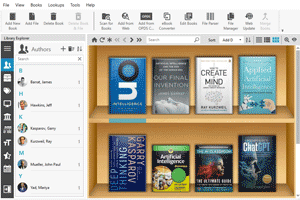4 books on Sentiment Analysis [PDF]
October 23, 2024 | 29 |
Books on Sentiment Analysis cover various aspects of natural language processing, machine learning and text analysis techniques used in sentiment analysis. They explain detection and classifying human emotions and opinions expressed in text data. Moreover, these books often include practical examples, sentiment lexicons, and real-world use cases, enabling startups to learn from successful sentiment analysis implementations.
1. New Opportunities for Sentiment Analysis and Information Processing
2021 by Sharaff, Aakanksha, Sinha, G. R., Bhatia, Surbhi

This book shows how sentiment analysis can be enhanced using deep learning across multiple domains and explores practical applications of emotion detection. For example, sentiment visualization - a tool to reduce dimensionality in data processing or sentiment identification in communication networks.
Download PDF
2. Sentiment Analysis: Mining Opinions, Sentiments, and Emotions
2020 by Bing Liu

This one concentrates on such specific applications as fake-opinion detection, debate analysis, emotion-enhanced dialogue research and intention mining that can be conducted using sentiment analysis techniques.
Download PDF
3. Multimodal Sentiment Analysis
2018 by Soujanya Poria, Amir Hussain, Erik Cambria

Sentiment analysis can be multi-modal - it can be enhanced by combining text, audio and visual cues. From this book I found out that linguistics and machine learning, audio and visual data processing frameworks are essential in multimodal analysis and improve sentiment analysis accuracy. Data visualizations and case studies can clarify the application of multimodal sentiment analysis techniques.
Download PDF
4. Semantic Sentiment Analysis in Social Streams
2017 by H. Saif

This author showcases how contextual semantics (from word co-occurrences) improves sentiment accuracy in Twitter data and conceptual semantics (from external sources) enhances sentiment models for entities and tweets. Tweet-level sentiment analysis performs better when semantics are considered and entity-level sentiment analysis can benefit significantly from semantic. You'll see that context-sensitive sentiment lexicon adaptation can outperform traditional methods in social media sentiment analysis.
Download PDF
How to download PDF:
1. Install Google Books Downloader
2. Enter Book ID to the search box and press Enter
3. Click "Download Book" icon and select PDF*
* - note that for yellow books only preview pages are downloaded
1. New Opportunities for Sentiment Analysis and Information Processing
2021 by Sharaff, Aakanksha, Sinha, G. R., Bhatia, Surbhi

This book shows how sentiment analysis can be enhanced using deep learning across multiple domains and explores practical applications of emotion detection. For example, sentiment visualization - a tool to reduce dimensionality in data processing or sentiment identification in communication networks.
Download PDF
2. Sentiment Analysis: Mining Opinions, Sentiments, and Emotions
2020 by Bing Liu

This one concentrates on such specific applications as fake-opinion detection, debate analysis, emotion-enhanced dialogue research and intention mining that can be conducted using sentiment analysis techniques.
Download PDF
3. Multimodal Sentiment Analysis
2018 by Soujanya Poria, Amir Hussain, Erik Cambria

Sentiment analysis can be multi-modal - it can be enhanced by combining text, audio and visual cues. From this book I found out that linguistics and machine learning, audio and visual data processing frameworks are essential in multimodal analysis and improve sentiment analysis accuracy. Data visualizations and case studies can clarify the application of multimodal sentiment analysis techniques.
Download PDF
4. Semantic Sentiment Analysis in Social Streams
2017 by H. Saif

This author showcases how contextual semantics (from word co-occurrences) improves sentiment accuracy in Twitter data and conceptual semantics (from external sources) enhances sentiment models for entities and tweets. Tweet-level sentiment analysis performs better when semantics are considered and entity-level sentiment analysis can benefit significantly from semantic. You'll see that context-sensitive sentiment lexicon adaptation can outperform traditional methods in social media sentiment analysis.
Download PDF
How to download PDF:
1. Install Google Books Downloader
2. Enter Book ID to the search box and press Enter
3. Click "Download Book" icon and select PDF*
* - note that for yellow books only preview pages are downloaded


